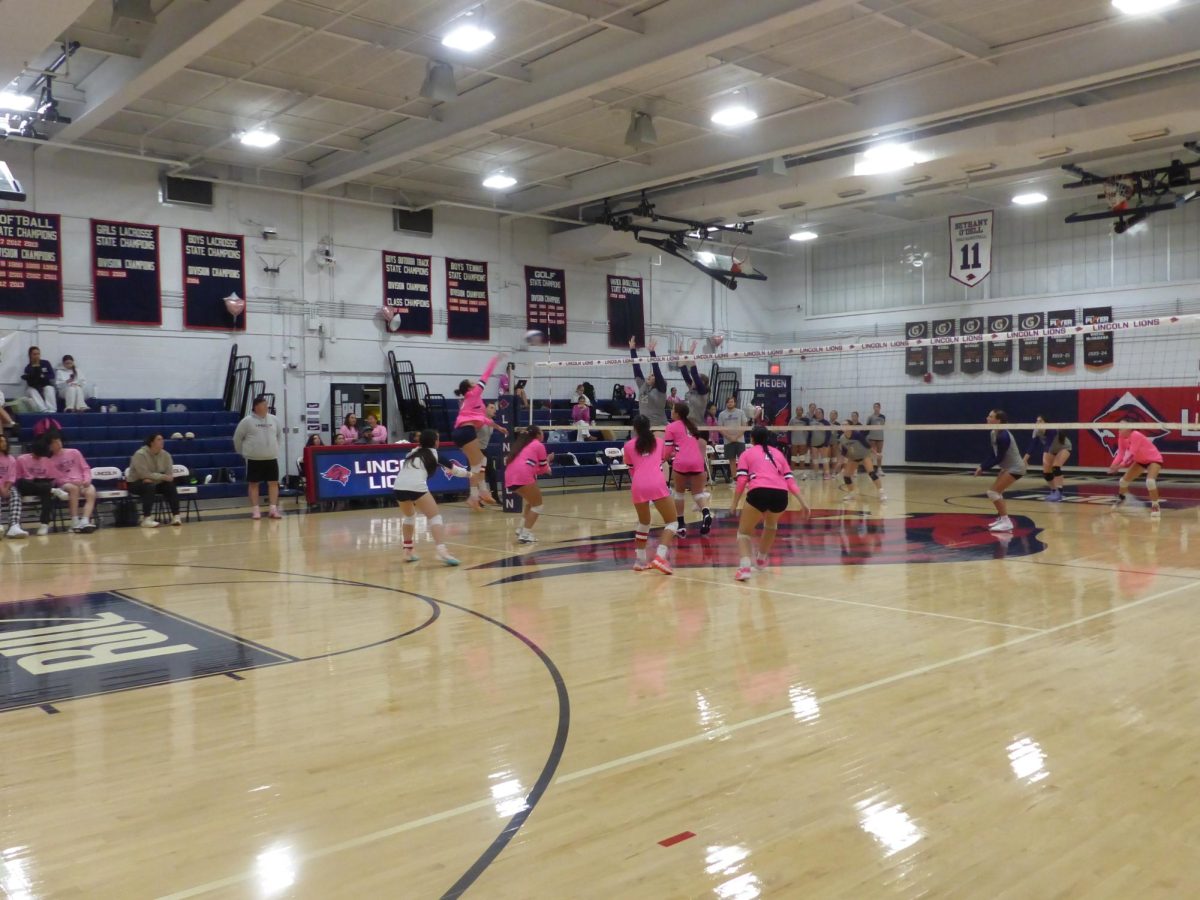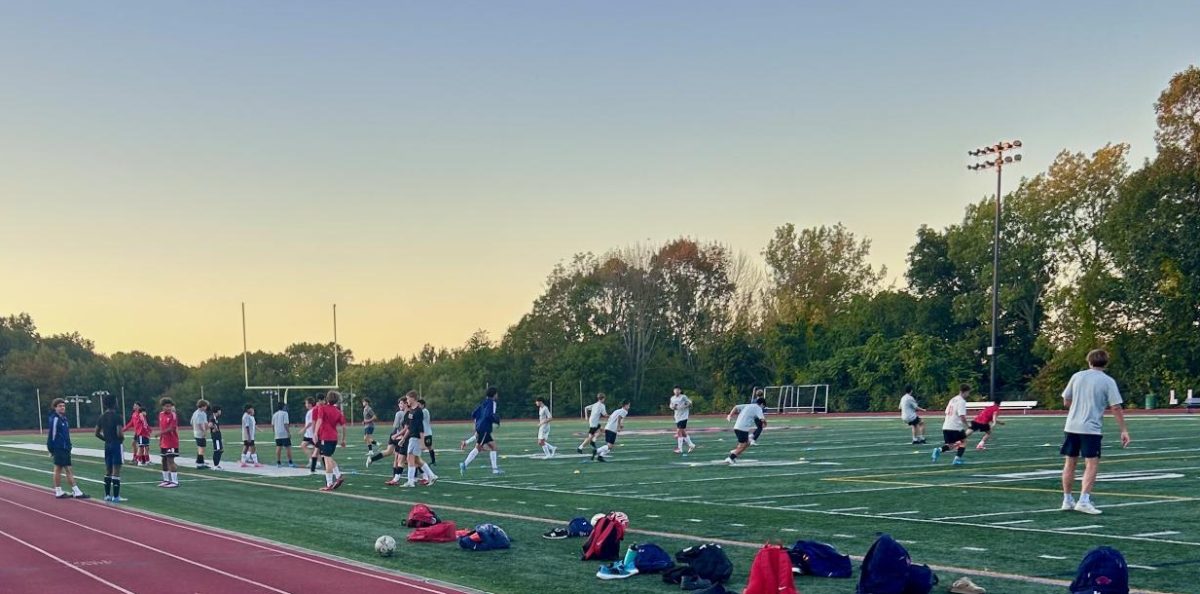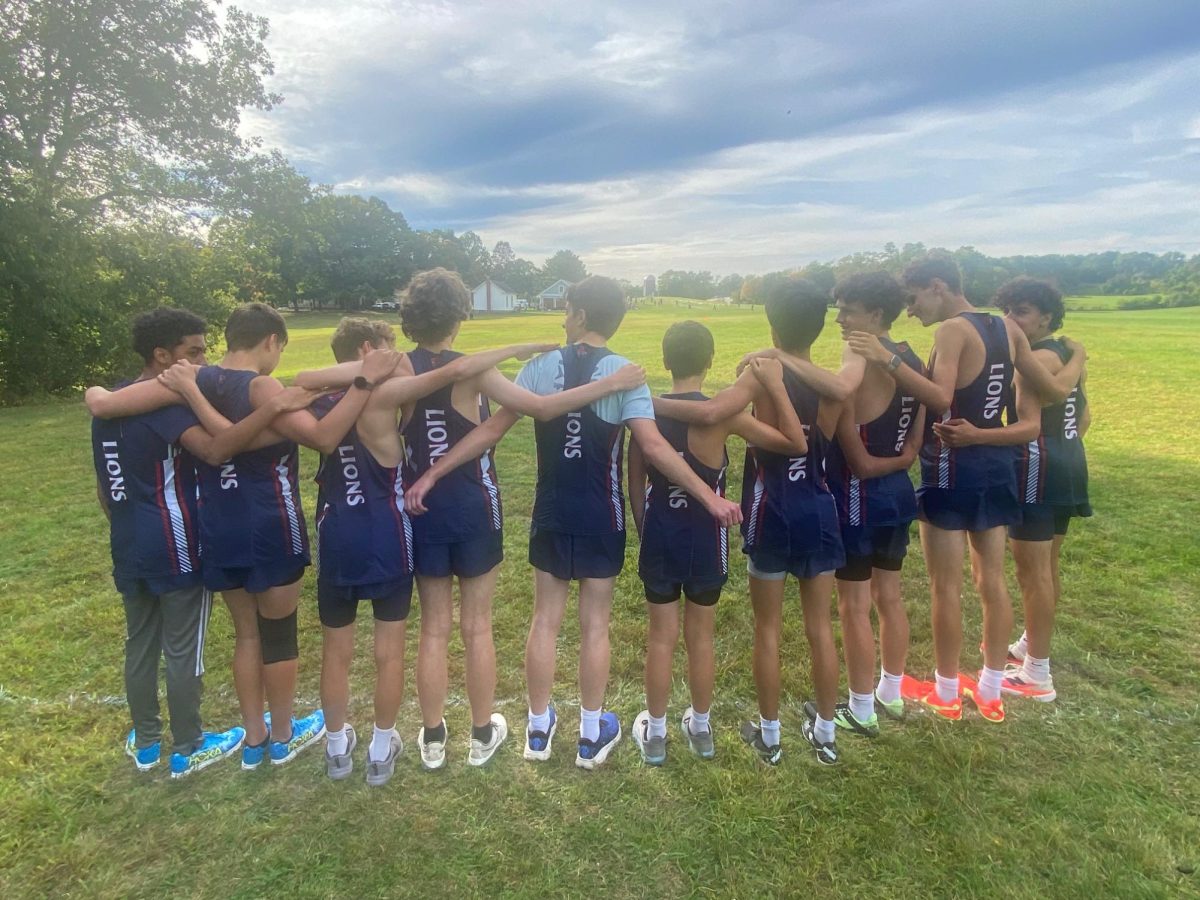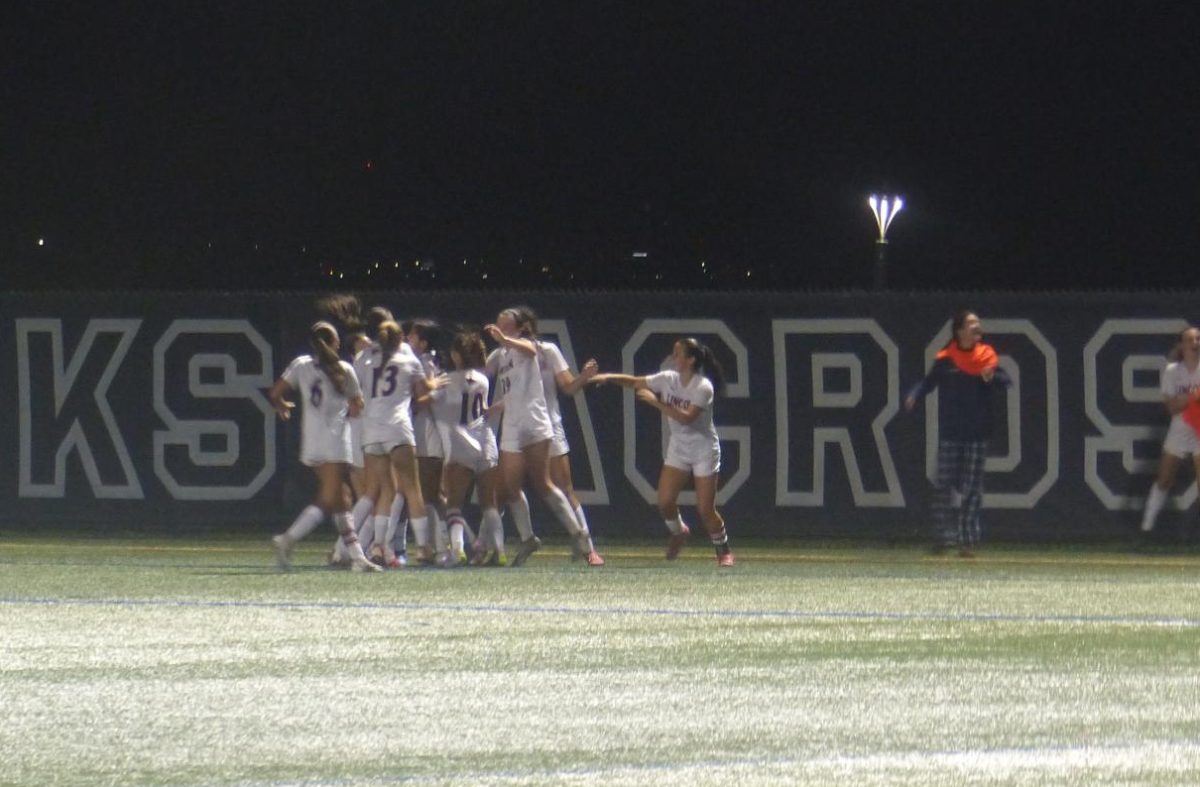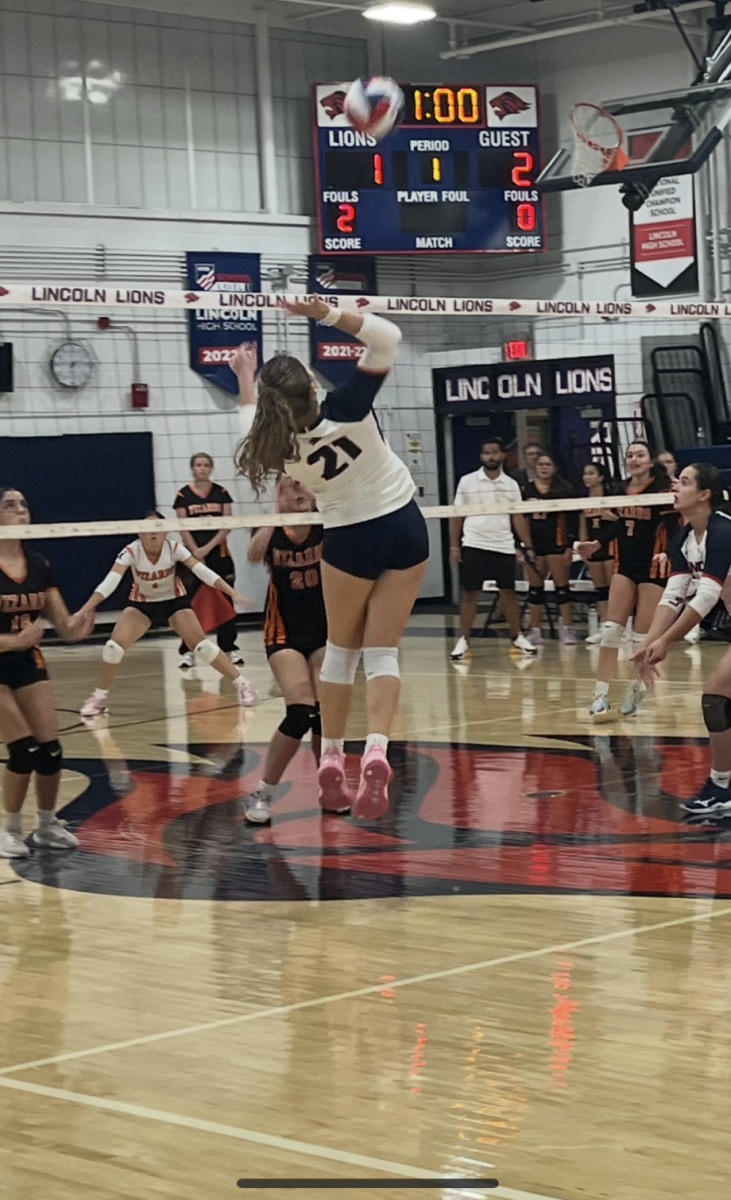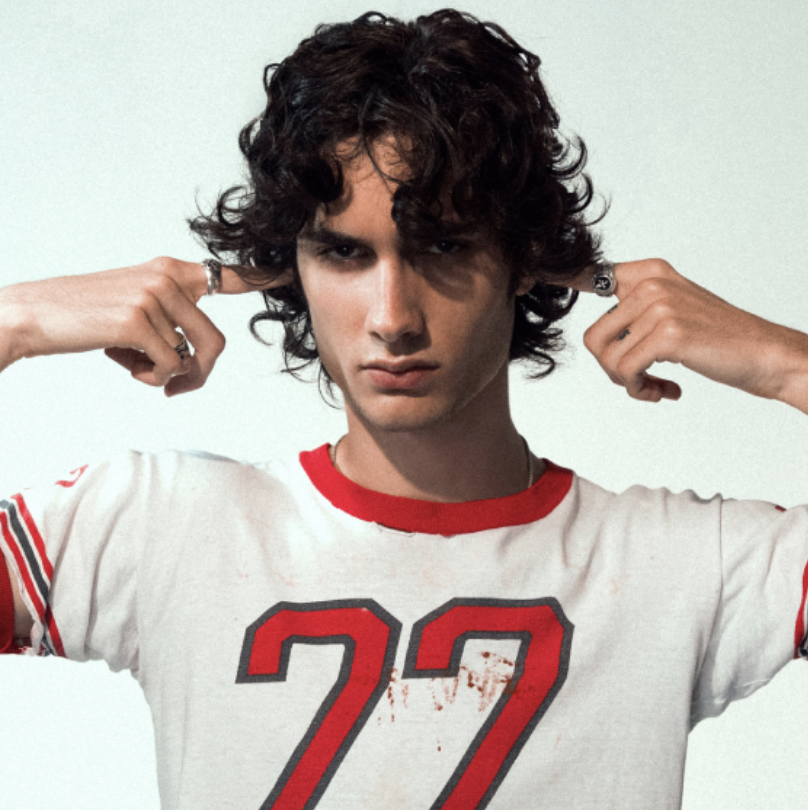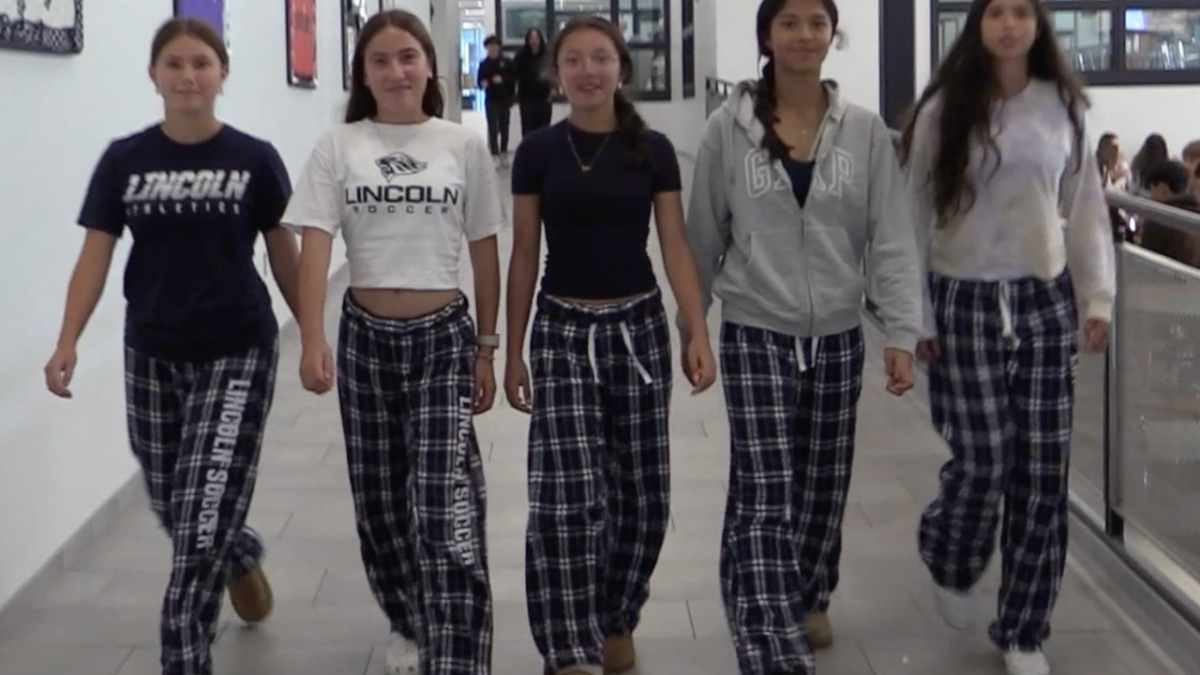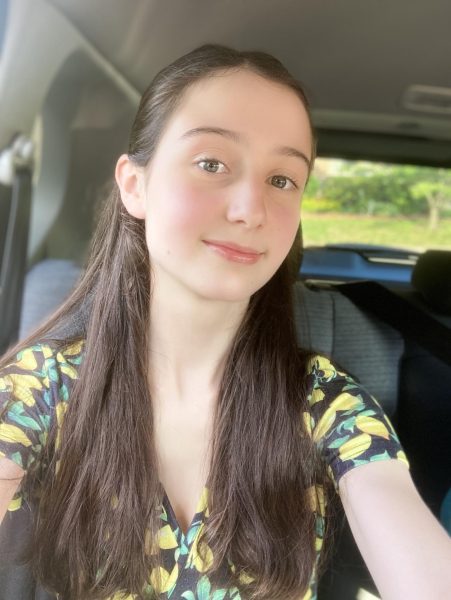Lincoln High School librarian Mrs. Patricia Vivari has some im-peck-able pets; she raises chickens!
Her friendly flock is divided into the older hens, Dandelion (named after her yellow feathers), Olive (named after her breed, Olive Egger), and Roxy (named for her breed, Rhode Rock), and the newer hens, Buffy (named after Buffy the Vampire Slayer and her breed, Buff Orpington), Lady Featherington (named after Bridgerton character Portia Featherington), and Hennifer of Egginberg (named after The Witcher character Yennefer of Vengerberg).
These are Vivari’s third and fourth sets of chickens in ten years. Her first hens were named Cacciatore, Marsala, and Princess Layer, which was pronounced “Leia” as if she had a Rhode Island accent.
There was also one instance of the Vivaris receiving a rooster, since it is difficult to tell the sex of a chick. While the Vivaris loved the rooster – who they named Nugget – they could not keep him as they did not want him to breed with their hens, crow at the crack of dawn, or injure a human or hen since roosters are territorial.
“He started to crow right before we got rid of him, so I actually have a recording of his little baby crow, and that was my notification sound on my phone for a long time,” Vivari said.
Although Vivari first got chickens because her husband wanted to, she has enjoyed the benefits of the chickens very much.
The chickens provide the Vivaris with fresh eggs for most of their lifetime. When eggs were very expensive during the covid-19 pandemic, this was a huge money-saver. Plus, the eggs are delicious.
“Once you’ve gotten accustomed to fresh eggs, eggs from a grocery store are actually kind of gross,” Vivari said. “I’ve been spoiled for all other eggs.”
When the chickens get too old to continue to lay eggs, the Vivaris bring them to Baffoni’s Poultry Farm in Johnston, Rhode Island, where they are slaughtered and processed for meat. Since the chickens are raised for their eggs, not meat, their meat would not be very good, so the Vivaris only consume chicken broth from them.
During the chickens’ lifetime, they are often allowed to be free range in Vivari’s backyard. They eat all sorts of insects, protecting Vivari’s dogs from ever getting ticks. Unfortunately, they also eat the strawberries in the garden, but it is worth it because the chickens contribute to the garden as well.
“Some of the best fertilizer and compost for a garden is chicken manure,” Vivari said. “When we clean out their poop, that goes into the compost, which then goes into [Mr. Vivari’s] vegetable garden. Then, the chickens get the vegetable scraps. It’s a whole big cycle.
“Having chickens has also cut down our food waste a lot” Vivari said. As long as it’s not moldy or rotten, the chickens can eat it, for the most part.”
Perhaps the best thing about the chickens is their cuteness factor.
“They’re so cute and fluffy when they’re chicks,” Vivari said. “Then, they go through this ridiculously awkward adolescent phase when their baby fluff is falling out and their adult feathers are growing in and they look so ugly and awkward. They’re so homely. Then, they turn into these pretty fluffy birds.”
If that is not enough to convince someone to raise chickens, Vivari says the chickens are relatively low-maintenance.
“It’s about 10 minutes a day,” Vivari said “I’ll give them some treats. I’ll interact with them because the more I interact with them, the more social they are and the less of a problem I have if I notice a health concern. I need to be able to handle them. I collect any eggs that got laid.
“Then, it takes between half an hour and an hour once a week to sweep out the coop, take it out to the compost, put new shavings in, give them more treats. Cleaning the coop is not always the most pleasant of experiences, but if we do it once a week, it stays clean and it doesn’t smell. My husband is an enginerd, so he like made it so that everything stays dry.”
An unconventional aspect of the Vivaris’ chicken parenthood is that the chickens live partially indoors because at first, Vivari was not zoned to keep them outdoors.
“Just like any other pet, they live inside, but they’ll go outside during the day,” Vivari said. We did build a shelter for them out in the yard so that if all of a sudden it starts raining, they have somewhere to go. That’s how we kept the olds and the littles separated this summer while the littles grew. We put the olds outside and just kind of had them stay outside.”
This keeps the chickens nice and safe. In all Vivari’s time raising chickens, only one has been taken by an animal, and one has had to be put down because of her aggressive behavior towards other chickens. Rest in peace, Curry and Chloe.
The Vivaris’ dogs have never been an issue.
“Our puppy has to be leashed when the chickens are outside because he will chase them,” Vivari said. “Brady and Chuck, my two older dogs, mostly leave the chickens alone.”
Best of cluck with your chickens, Mrs. Vivari!













